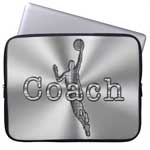“We compete, not so much against an opponent, but against ourselves. The real test is this: Did I make my best effort on every play?” Bud Wilkinson
 What makes a good coach?
What makes a good coach?
Among other things, a good coach can raise an athlete’s confidence and improve their performance.
A good coach will be even-tempered, level-headed, and remain calm and composed even when things are not going well.
They also know the importance of engaging with their players through constructive criticism and positive talk to better the athletes mentally and physically.
A potential pitfall can sometimes come about for the athletes who learn to rely solely on their coach’s pep talks (or other external factors) to regulate their game. This indicates the formation of over-reliance on their coach.
A good coach can sense when an athlete’s head is in the game and when it is not.
During the game, the most a coach can do is call a time out to talk to the athlete or bench the athlete in favor of giving another athlete an opportunity.
Successful athletes all have something in common. They all know how to become their best coach when it comes to their mental game. Not only do they know what pushes them, but they also learn how to manage or self-regulate their thoughts and actions at the appropriate time and in a manner to get optimal performance out of themselves.
The excellent coach qualities, some of which were listed previously, can be learned and nurtured by most athletes that want to manage and allow themselves to boost their basketball mind and IQ.
Athletes can sometimes quickly see and understand the benefits of letting go of errors and generally manage to cope better with imperfections in practice and competition. This allows athletes to focus their mental and physical efforts in the moment and on the current play; instead of letting things they can not control penetrate their minds.
These athletes have learned not to engage in perfectionist behaviors. They are not hard on themselves when things go wrong, or they perform poorly. They do not engage in negative or critical internal dialogues or mental chatter.
Athletes who can supplement or replicate their coach’s positive input on their own tend to become more independent on the court as they learn to trust their mental and physical abilities.
This is often the cornerstone to developing basketball confidence and reaching optimal performance.
Check out some FREE resources that will help you Elevate Your Game!
